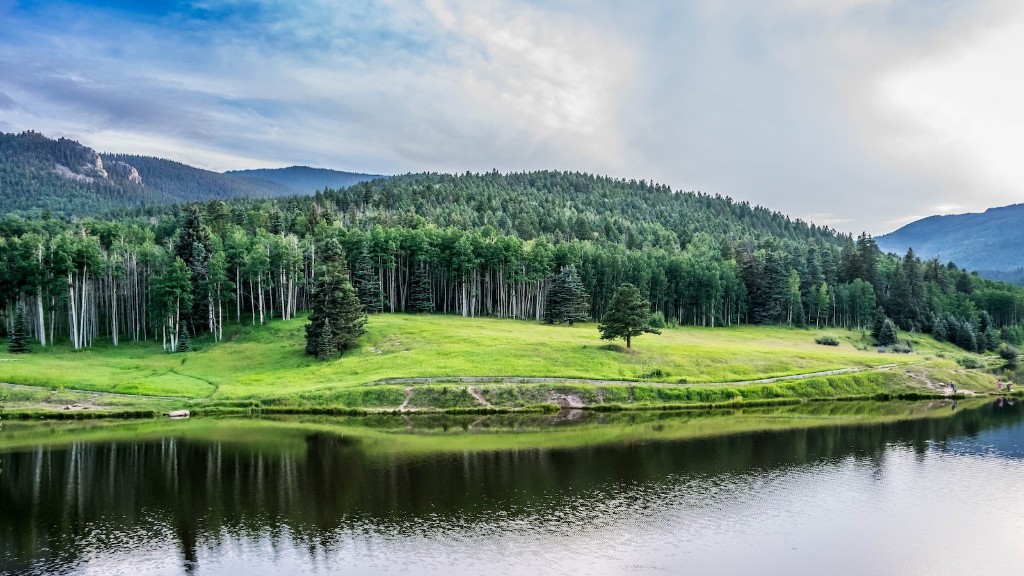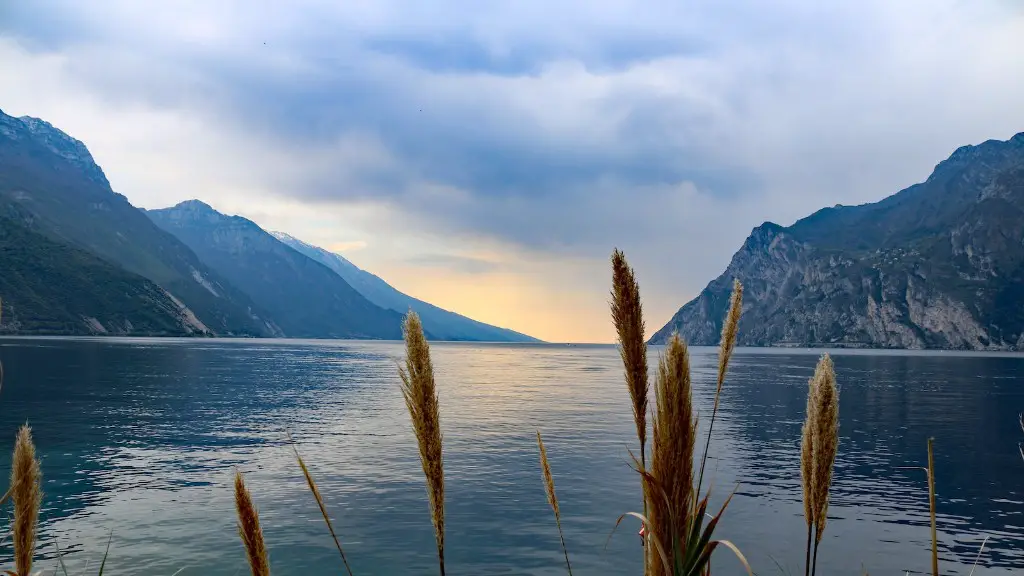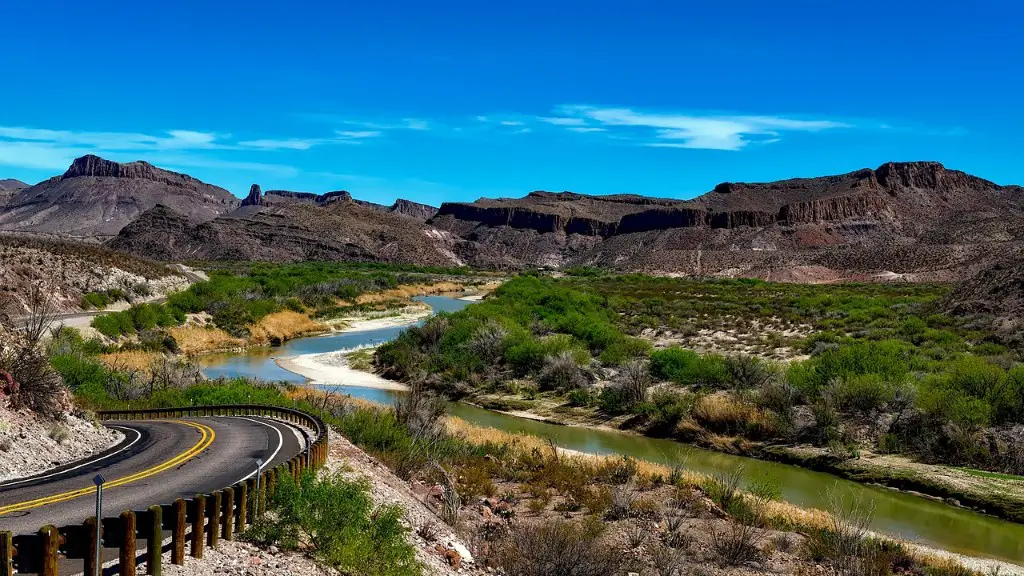The Nile River has been an integral part of Ancient Egyptian history and culture for thousands of years. It was the lifeblood of their society and the source of much of their power. The Ancient Egyptians built their settlements on the banks of the river and its waters provided sustenance for their crops and fish for their diet. Their entire lifestyle was interwoven with the river and it was instrumental in their ability to flourish as a society. Consequently, the Nile River has become renowned as one of the most important rivers in the world.
The river was so crucial to the Ancient Egyptians because of its unique geography and environment. Firstly, it is the longest river in the world. It flows from the highlands of Ethiopia, through nine countries and into the Mediterranean Sea. It provided Ancient Egypt with vital resources such as soil, fish, minerals and transportation. Secondly, its annual flooding meant that the soil along its banks was incredibly fertile and easy to cultivate, allowing Ancient Egyptians to farm the banks of the Nile and have a reliable and abundant food source. This same flooding also created a barrier that insulated Egypt from other hostile forces in the region.
Moreover, the Nile provided Ancient Egypt with access to trade and commerce with other lands. It was easily navigable, making it the perfect medium for trade vessels travelling to and from Egypt. This meant Ancient Egyptians had access to goods from all over the world and could easily exchange the produce of their own lands for the things they needed. This commerce is reflected in the wealth of the surrounding area and how it was built up by the Egyptians over time.
The Nile was intertwined with many aspects of Ancient Egyptian life, so much so that the river was even attributed with divine significance. It was believed to be the source of life, the blood of the gods and the foundation upon which the entire civilisation was built. The Ancient Egyptians would offer prayers and ceremonies to the River in gratitude for its gifts and to ensure its wellbeing. It is this reverence for the river which speaks to its real significance in Ancient Egyptian history.
Protection from Invaders
The Nile was instrumental in providing Ancient Egyptians with protection from invaders. It was a natural barrier that guarded Egypt on two sides. Invaders coming from the west had to first cross the Mediterranean Sea and then navigate through the Nile Delta before reaching the lands of Egypt. This meant that the Ancient Egyptians had ample time to prepare for any invasions and mount a strong defense if necessary. Additionally, the same flooding of the Nile that provided them with fertility allowed them to build intricate irrigation systems to assist in fortifications as well.
In addition to providing natural protection, the Nile also enabled the Ancient Egyptian’s to share information more quickly. The river was filled with boats and ships which carried letters and officials up and down its length. This meant the pharaoh and other officials had the freedom to send messages quickly should they need to rally their forces or announce any important news. Even with the limited technologies available, this system was faster and more reliable than any land-based method.
The river also provided a means for transportation of food and materials. Not only did this create a trade network between cities and states, but allowed for military forces to move quickly along its length. In this way, the river enabled Ancient Egyptian’s to not only defend their own lands but to also move quickly and adequately protect their allies from foreign powers that may threaten them.
The Nile, therefore, was fundamental in Ancient Egypt’s success and development over millennia. It provided a solid foundation of sustainability on which their society could flourish and protect itself. Its significance is echoed in the reverence it was held to by the Ancient Egyptians, and its impact can still be felt today.
A Platform for Connectivity
The Nile River was an essential platform for communication and connectivity in Ancient Egypt. It was the main avenue of trade and transportation, connecting the many cities and provinces that make up the region. Without it, the scale of Ancient Egypt’s economy and power would have been much different. It allowed for goods, information and people to move quickly and efficiently between different areas, allowing Ancient Egypt to spread their influence and grow as a civilisation.
Moreover, the Nile served as a unifying force for the people of Ancient Egypt. It was an omnipresent reminder of the scope of the civilisation and its ever-reaching power. It provided a connecting element between different locations, creating a sense of solidarity in the area and a unified collective of the different provinces. This brought together the different cultures of the region and created a powerful sense of identity that was core to Ancient Egyptian identity.
The Nile allowed for a degree of integration among different peoples and cultures that could otherwise not have been achieved. It brought together districts, provinces and countries that would otherwise have been isolated and too far removed to interact in any meaningful way. This interconnectedness was essential to Ancient Egypt’s growth as a powerful and influential civilisation.
The Nile was not only the foundation upon which Cities and states were built, but it served as the artery of connectivity that made the ancient Egyptian civilisation thrive. It served as a source of transportation, sustenance, protection and it enabled them to share their many different cultures, languages, and ultimately their legacy with the rest of the world.
An Integral Religion
The Nile was also an integral part of Ancient Egyptian’s religion. Throughout the Ancient Egyptian period, the gods and goddesses were closely associated with the river and it became a central focus of their spirituality and worship. The Ancient Egyptians believed that the gods and goddesses were the source of power for their civilisation and were dependent on their goodwill. Consequently, they believed the Nile was a fundamental part of their religious practices and traditions.
The significance of the Nile in Ancient Egyptian religion is most clearly seen in their reverence for the river. It was of great spiritual importance to them and they regularly offered sacrifices and prayers to its waters. They believed that the gods could be invoked by touching the waters of the Nile and prayed to them for protection as well as general wellbeing. Additionally, the gods were often depicted sailing down the river in their sacred boats.
Furthermore, the Ancient Egyptians’ system of oracles relied heavily on the Nile. The oracles provided them with advice and predictions and were viewed as a direct link to the gods. To gain their favour, priests would often conduct rites on board boats and floats on the river. This was seen as a means of connecting with the spiritual energy of the gods and was an important part of their religious rituals.
All in all, the importance of the Nile to Ancient Egyptian culture and spirituality is evident. It is a fundamental part of their mythological and religious belief system, exemplifying the importance of its waters in the society and culture of the time.
Conclusion of the Nile’s Power
In conclusion, the Nile River was an integral Figure in the success and longevity of the Ancient Egyptian civilisation. It provided sustenance, protection, and an avenue of communication, religion, and trade that without, their lifestyle could not have been sustained. Its importance can still be felt today and is a testament to the ingenuity and resourcefulness of the people of Ancient Egypt.




